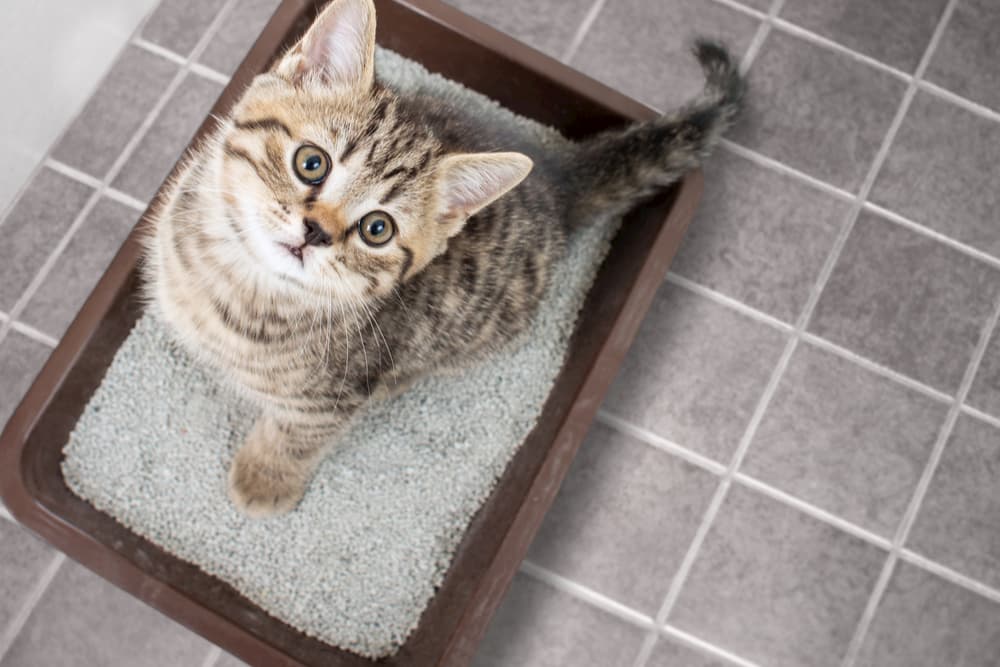Why You Should Never Flush Cat Poop Down Your Toilet - Important Facts
Why You Should Never Flush Cat Poop Down Your Toilet - Important Facts
Blog Article
What are your opinions about How to Dispose of Cat Poop and Litter Without Plastic Bags?

Intro
As cat owners, it's essential to bear in mind just how we take care of our feline pals' waste. While it might appear convenient to flush cat poop down the bathroom, this method can have destructive repercussions for both the setting and human health.
Alternatives to Flushing
Fortunately, there are safer and extra liable means to dispose of pet cat poop. Think about the adhering to alternatives:
1. Scoop and Dispose in Trash
One of the most typical approach of dealing with cat poop is to scoop it right into a naturally degradable bag and toss it in the garbage. Be sure to use a specialized trash scoop and deal with the waste quickly.
2. Use Biodegradable Litter
Go with biodegradable cat clutter made from materials such as corn or wheat. These trashes are environmentally friendly and can be safely gotten rid of in the trash.
3. Hide in the Yard
If you have a lawn, think about burying cat waste in an assigned location away from vegetable yards and water sources. Make sure to dig deep sufficient to prevent contamination of groundwater.
4. Install a Pet Waste Disposal System
Buy an animal garbage disposal system especially created for feline waste. These systems use enzymes to break down the waste, lowering odor and environmental impact.
Wellness Risks
In addition to environmental problems, purging feline waste can also pose health threats to human beings. Feline feces may contain Toxoplasma gondii, a bloodsucker that can trigger toxoplasmosis-- a possibly serious illness, especially for pregnant ladies and individuals with damaged immune systems.
Ecological Impact
Flushing cat poop presents hazardous virus and bloodsuckers into the water, presenting a significant threat to water environments. These contaminants can adversely affect aquatic life and concession water top quality.
Verdict
Liable pet dog possession expands past offering food and shelter-- it additionally involves proper waste monitoring. By avoiding flushing cat poop down the toilet and going with different disposal techniques, we can lessen our environmental impact and secure human wellness.
Why Can’t I Flush Cat Poop?
It Spreads a Parasite
Cats are frequently infected with a parasite called toxoplasma gondii. The parasite causes an infection called toxoplasmosis. It is usually harmless to cats. The parasite only uses cat poop as a host for its eggs. Otherwise, the cat’s immune system usually keeps the infection at low enough levels to maintain its own health. But it does not stop the develop of eggs. These eggs are tiny and surprisingly tough. They may survive for a year before they begin to grow. But that’s the problem.
Our wastewater system is not designed to deal with toxoplasmosis eggs. Instead, most eggs will flush from your toilet into sewers and wastewater management plants. After the sewage is treated for many other harmful things in it, it is typically released into local rivers, lakes, or oceans. Here, the toxoplasmosis eggs can find new hosts, including starfish, crabs, otters, and many other wildlife. For many, this is a significant risk to their health. Toxoplasmosis can also end up infecting water sources that are important for agriculture, which means our deer, pigs, and sheep can get infected too.
Is There Risk to Humans?
There can be a risk to human life from flushing cat poop down the toilet. If you do so, the parasites from your cat’s poop can end up in shellfish, game animals, or livestock. If this meat is then served raw or undercooked, the people who eat it can get sick.
In fact, according to the CDC, 40 million people in the United States are infected with toxoplasma gondii. They get it from exposure to infected seafood, or from some kind of cat poop contamination, like drinking from a stream that is contaminated or touching anything that has come into contact with cat poop. That includes just cleaning a cat litter box.
Most people who get infected with these parasites will not develop any symptoms. However, for pregnant women or for those with compromised immune systems, the parasite can cause severe health problems.
How to Handle Cat Poop
The best way to handle cat poop is actually to clean the box more often. The eggs that the parasite sheds will not become active until one to five days after the cat poops. That means that if you clean daily, you’re much less likely to come into direct contact with infectious eggs.
That said, always dispose of cat poop in the garbage and not down the toilet. Wash your hands before and after you clean the litter box, and bring the bag of poop right outside to your garbage bins.
https://trenchlesssolutionsusa.com/why-cant-i-flush-cat-poop/

Do you enjoy more info about Don’t flush cat feces down the toilet? Put a short review directly below. We would be pleased to find out your suggestions about this blog post. We are looking forward that you visit us again before long. If you please take the opportunity to share this post if you liked it. Thanks for your time. Don't forget to check our site back soon.
Call Us Now Report this page